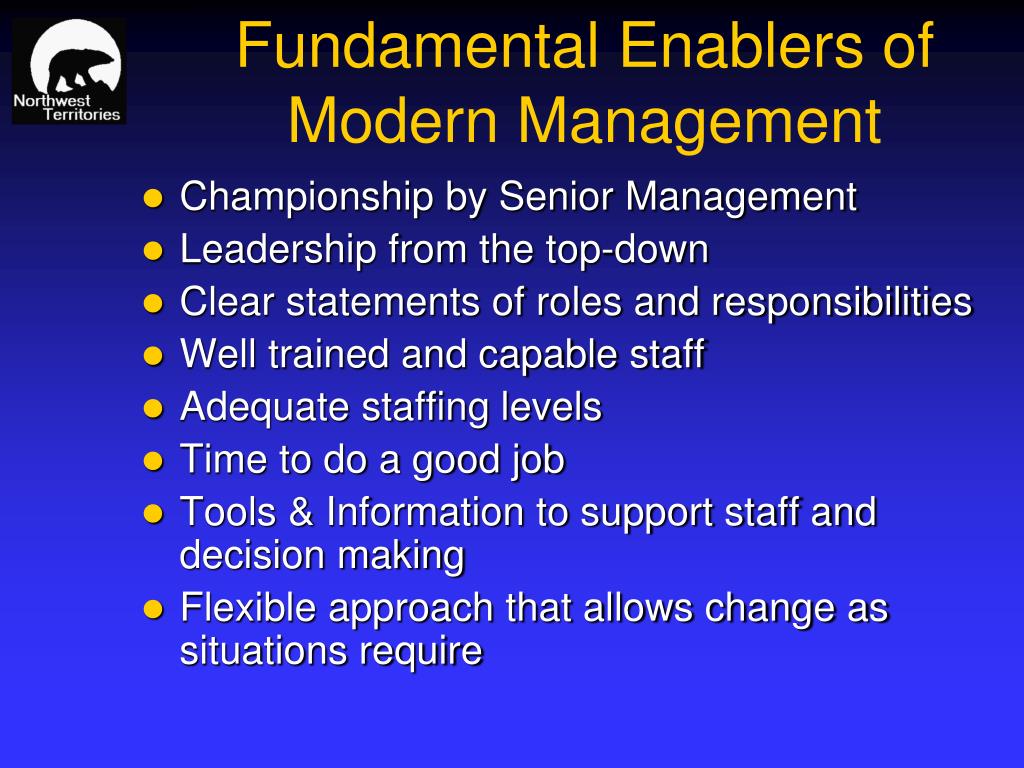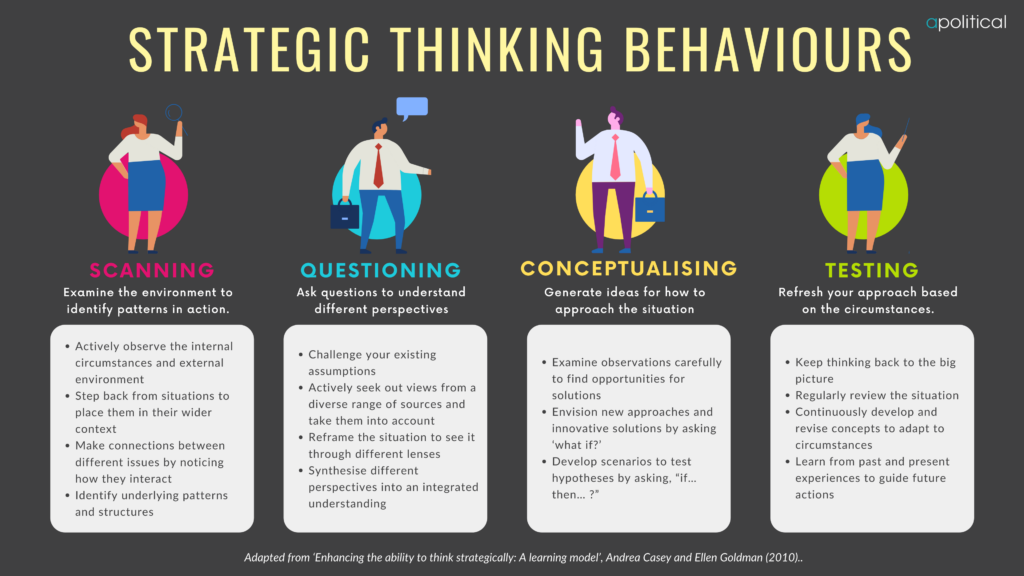In today’s fast-paced business environment, organizations must adapt and evolve their management practices to stay competitive and drive growth. This blog post will explore modern management practices, why they are essential, the benefits of incorporating them, and the best way to adopt them. We will also explore how current management practices influence organizational strategy and discuss common implementation challenges. Stay tuned for real-life case studies and future trends in contemporary management practices. Let’s dive in!

Understanding Modern Management
Modern management practices refer to the contemporary approaches and techniques used in managing organizations to achieve desired goals and outcomes. These practices have evolved from traditional management methods to adapt to the changing business landscape and the needs of today’s workforce.
Fundamental Principles of Modern Management
1. Strategic Thinking: Modern management practices emphasize aligning management actions with the organization’s strategic objectives. This involves setting clear goals, identifying key performance indicators, and developing action plans to achieve desired outcomes.
2. Collaboration and Communication: Effective communication and collaboration among teams and departments are crucial in modern management. Open and transparent communication channels are encouraged to foster teamwork, information sharing, and innovation.
3. Continuous Learning and Development: Modern management recognizes the importance of ongoing learning and skill development. Managers are encouraged to provide opportunities for employees to enhance their knowledge and skills through training programs and professional development initiatives.
4. Results-Oriented Approach: Modern management practices focus on achieving measurable results. Key performance indicators are established, and progress is monitored to meet desired outcomes.
Examples of Modern Management in Action
1. Agile Project Management: Agile methodologies like Scrum and Kanban have gained popularity in modern management. These approaches allow flexibility, adaptability, and quick responses to changing project requirements.
2. Employee Empowerment: Modern management emphasizes empowering employees by giving them autonomy, decision-making authority, and opportunities to take ownership of their work.
3. Performance Feedback and Recognition: Regular feedback and recognition are essential in modern management practices. Managers provide constructive feedback to help employees improve their performance and acknowledge and reward their achievements.
4. Data-Driven Decision Making: Modern management uses data and analytics to make informed decisions. Managers analyze relevant data to identify trends, patterns, and opportunities for improvement.

Importance of Modern Management in Today’s Business
Modern management practices are crucial in today’s business environment, driving innovation, agility, and overall success. Here are some key reasons why adopting current management practices is essential:
1. Driving Innovation and Agility
Modern management practices encourage a culture of innovation and creativity within an organization. By embracing new ideas and encouraging risk-taking, businesses can stay ahead of the competition and adapt to the ever-changing market dynamics.
2. Importance of Employee Engagement and Empowerment
In today’s business landscape, employee engagement and empowerment are vital for growth and success. Modern management practices foster a collaborative and inclusive work environment where employees feel valued, motivated, and have a sense of ownership. This leads to higher productivity, improved morale, and reduced employee turnover.
3. Effect on Overall Productivity and Performance
Implementing modern management practices improves overall productivity and performance within an organization. Businesses can optimise their operations and achieve better outcomes by focusing on clear goals, effective communication, and streamlined processes.
Modern management practices benefit businesses in today’s fast-paced and competitive landscape. From improved decision-making to enhanced employee satisfaction, incorporating these practices is essential for long-term success.
Benefits of Incorporating Modern Management
Improved decision-making and problem-solving
Modern management practices emphasize data-driven decision-making and problem-solving techniques. By utilizing accurate and timely information, organizations can make more informed choices, leading to improved outcomes and reduced risks.
Enhanced employee satisfaction and retention
Implementing modern management practices that prioritize employee engagement, empowerment, and work-life balance can significantly enhance employee satisfaction and retention rates. This leads to higher productivity, reduced turnover, and a positive work environment.
Increased competitiveness and market share
Modern management practices allow organizations to stay competitive in today’s rapidly changing market. By embracing innovation, flexibility, and agility, companies can adapt to market trends, gain an edge over competitors, and ultimately increase their market share.

Adopting Modern Management Practices: A Step-by-Step Guide
Assessing current management practices
To adopt modern management practices, assessing the current practices within your organization is essential. This involves evaluating the existing management methods, policies, and procedures.
Identifying areas for improvement and setting goals
Once you have assessed the current management practices, it is essential to identify areas that can be improved. This could include outdated processes, ineffective communication channels, or a lack of employee involvement. Set clear goals for each identified area that align with modern management principles.
Implementing and monitoring changes
Implement the necessary changes to bring modern management practices into your organization. This could involve implementing new communication tools, restructuring teams, or enhancing employee empowerment. Monitor and evaluate the effectiveness of these changes regularly to ensure they align with your goals and produce the desired outcomes.
How Modern Management Practices Influence Organizational Strategy
Modern management practices are crucial in shaping an organization’s strategic direction and success. Here are some key ways in which these practices influence organizational strategy:
Alignment of management practices with strategic objectives
Modern management practices are designed to align with the organisation’s strategic objectives. By adopting these practices, businesses ensure that their management strategies align with their long-term goals. This alignment helps in effectively allocating resources, prioritizing initiatives, and driving the organization towards its desired outcomes.
Impact on resource allocation and Prioritization
An organization’s resources are limited, and it is essential to allocate them strategically to achieve optimum results. Modern management practices provide frameworks and tools that guide decision-making processes related to resource allocation and prioritization. By incorporating these practices, organizations can make informed decisions about resource allocation, ensuring that the most critical projects and initiatives receive the necessary resources.
Influence on organizational culture and Values
Modern management practices also influence an organization’s culture and values. These practices emphasize open communication, collaboration, innovation, and employee empowerment. When these principles are embedded in the management processes, it creates a positive organizational culture that encourages creativity, risk-taking, and continuous improvement. This, in turn, helps shape the organization’s strategy and guide its growth.
Driving Growth with Modern Management Practices
Modern management practices drive innovation and agility and foster growth within organizations. By adopting these practices, companies can create a culture of continuous improvement and enable their employees to take risks and innovate. Here are some ways modern management practices drive growth:
Encouraging Innovation and Risk-Taking
Modern management practices promote a culture of innovation by encouraging employees to think outside the box and develop new ideas. By providing them with the freedom to take risks and learn from failures, organizations can foster innovation that leads to growth and success.
Promoting Agile Decision-Making and Flexibility
Modern management practices emphasize the importance of agile decision-making, enabling organizations to respond quickly to market changes and opportunities. By promoting flexibility in decision-making processes, companies can adapt their strategies and approaches to drive growth and stay ahead of the competition.
Creating a Culture of Continuous Improvement
Modern management practices focus on continuous improvement, encouraging employees to seek ways to enhance processes, products, and services. By creating a culture of continuous improvement, organizations can drive growth by constantly striving for excellence and finding ways to deliver more value to customers.
Incorporating modern management practices in an organization can significantly impact driving growth, enabling companies to stay competitive, adapt to changes, and continuously improve their performance.
Common Challenges in Implementing Modern Management Practices
Implementing modern management practices can be a challenging endeavour for organizations. Here are some common challenges that companies may face:
- Resistance to change from employees and management: Not everyone may be open to adopting new management practices, especially if they have followed traditional methods for a long time. Resistance to change can hinder the implementation process.
- Lack of buy-in and support from key stakeholders: Without the support and buy-in of key stakeholders, it cannot be easy to implement modern management practices successfully. Some stakeholders may have a conservative mindset and may not fully understand the benefits of the new rules.
- Difficulty in aligning new practices with existing systems and processes: Modern management practices often require changes in systems and processes. It can be challenging to align the latest techniques with existing structures and workflows, especially if they have been ingrained in the organization for a long time.
Overcoming these challenges requires a strategic approach and careful planning. Organizations must address employee concerns, communicate effectively, and provide the necessary resources and support for a smooth transition to modern management practices.
Critical Factors for Successful Adoption of Modern Management Practices
Successful adoption of modern management practices requires careful consideration and planning. Here are some key factors that can contribute to the successful adoption of these practices:
Strong Leadership and Clear Communication
Leadership plays a crucial role in driving change and ensuring the successful adoption of modern management practices. Firm leaders must communicate these practices’ goals, benefits, and expectations to all levels of the organization. They must lead by example and provide guidance and support throughout the adoption process.
Practical Training and Development Programs
Training and development programs must equip employees with the necessary skills and knowledge to embrace and implement modern management practices. These programs should address the organisation’s specific needs and challenges, providing practical tools and resources for employees to succeed.
Supportive Organizational Structure and Policies
The organizational structure and policies should be aligned with the principles of modern management practices. This includes promoting collaboration, autonomy, and empowerment among employees. Clear guidelines and policies should be established to support and reinforce adopting these practices.
Note: It is important to note that every organization is unique, and the factors listed above may need to be tailored to fit specific organizational contexts. Flexibility and customization are key to successful adoption.
Case Studies: Companies Thriving with Modern Management Practices
Here are some examples of companies that have successfully adopted modern management practices and reaped the benefits:
Company A: Successful implementation of contemporary management practices
Company A, a multinational technology company, recognized the need to modernize its management approach to stay competitive in the digital age. By implementing agile methodologies, encouraging cross-functional collaboration, and promoting a culture of innovation, Company A could streamline operations, improve decision-making, and deliver products to market faster. As a result, the company experienced significant growth in market share and profitability.
Company B: Benefits and outcomes of adopting modern management practices
Company B, a retail organization, faced employee engagement and retention challenges. The company witnessed increased employee satisfaction and reduced turnover rates by adopting modern management practices focused on empowering employees, fostering a supportive work environment, and implementing feedback mechanisms. This, in turn, improved customer service and loyalty, boosting sales and market competitiveness.
Company C: Lessons Learned and best practices in modern management
Company C, a manufacturing company, embarked on a journey to incorporate modern management practices to enhance operational efficiency and drive growth. Through a comprehensive assessment of its existing management practices, Company C identified areas for improvement and set clear goals. The company substantially improved productivity, cost reduction, and customer satisfaction by implementing lean management principles, continuous improvement initiatives, and investing in employee training and development.
These case studies demonstrate the positive impact that modern management practices can have on businesses of various sizes and industries. By adopting these practices, companies can become more agile, innovative, and competitive in today’s dynamic business environment.
Future Trends in Modern Management Practices
As businesses evolve and adapt to changing environments, modern management practices are also experiencing shifts and trends. Here are some key future trends to keep an eye on:
Emerging technologies shaping current management practices
Advancements in technology, such as artificial intelligence, machine learning, and automation, are revolutionizing how organizations manage their operations. These technologies can streamline processes, enhance decision-making, and optimize resource allocation.
Shift towards remote and flexible work arrangements
The COVID-19 pandemic has accelerated the adoption of remote and flexible work arrangements. Companies are embracing remote teams, allowing employees to work from anywhere, and implementing flexible schedules. Modern management practices focus on fostering collaboration, communication and maintaining employee engagement in this new work environment.
Importance of data-driven decision making
Data is becoming increasingly valuable in informing business decisions. Modern management practices emphasize using data analytics to gain insights, identify trends, and make informed decisions. Organizations that leverage data effectively are more likely to stay competitive and adapt quickly to market changes.
Emphasis on diversity and inclusion
Inclusive workplaces that celebrate diversity are gaining traction. Modern management practices recognize the importance of embracing different perspectives and fostering a culture of inclusivity. This includes assortment in terms of gender, ethnicity, age, and more. Organizations prioritising diversity and inclusion are known to be more innovative and have a solid competitive edge.
Ethical and sustainable management
As societal expectations evolve, organizations are placing increasing importance on ethical and sustainable practices. Modern management practices align with environmental and social responsibility goals. Companies are adopting sustainable approaches, reducing their carbon footprint, and addressing social issues to create a positive impact while driving business growth.
Conclusion
Modern management practices have become essential for organizations aiming for long-term success in today’s fast-paced and competitive business landscape. By embracing these practices, companies can drive innovation, agility, and employee engagement, improving productivity and performance.
The benefits of incorporating modern management practices are numerous. Organizations can experience enhanced decision-making, problem-solving, and increased employee satisfaction and retention. Moreover, by aligning management practices with strategic objectives, companies can effectively allocate resources and prioritize initiatives to achieve growth and increased market share.
Adopting modern management practices may pose challenges, such as resistance to change and difficulty aligning new practices with existing systems. However, these can be overcome through strong leadership, clear communication, and practical training and development programs.
Future trends in modern management practices include the influence of emerging technologies, the shift towards remote and flexible work arrangements, and the importance of data-driven decision-making. Organizations that embrace these trends will be better positioned to adapt to the changing business landscape and thrive in the future.
By studying successful case studies and learning from best practices, companies can gain insights into how modern management practices can be effectively implemented and the positive outcomes they can achieve. Adopting current management practices is crucial for organizations seeking sustainable growth, competitive advantage, and a culture of continuous improvement.





